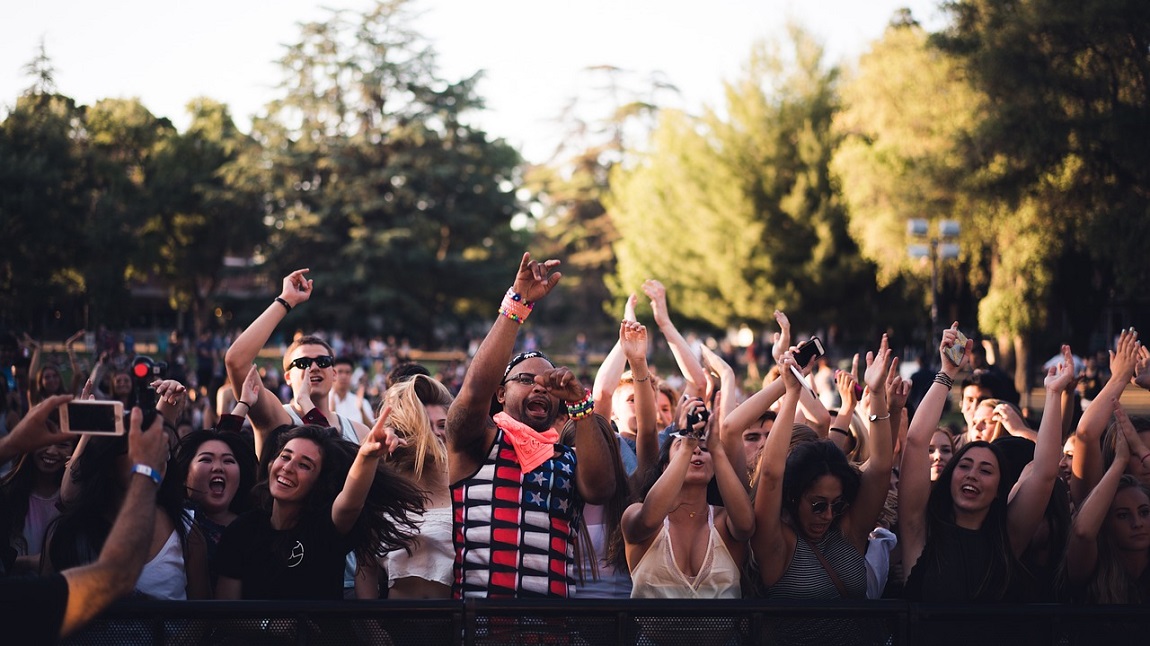“Take action to earn tickets” – that’s the tagline of the Global Citizen Mandela 100 Festival. The Motsepe Foundation, and a number of other corporate and charitable partners are doing the most for music lovers in South Africa, by bringing in an unprecedented number of international artists together on one stage, including the queen herself, Beyoncé. The catch is that 70% of the available tickets cannot be bought. You have to earn them through activism on issues such as education, human rights, women’s rights and environmental rights. I was so excited. “Finally,” I thought, “Activists are going to be recognised for their important work. They’re going to be rewarded for the blood, sweat and tears they put in every day to contribute to a better South Africa and a better world.” Imagine my dismay when I realised that in order to earn points to enter draws for tickets to the Festival, you have to tweet, sign online petitions, send emails, check-in on Facebook and make phone calls. None of these activities require you to leave your house or take your eyes off your cell phone screen. Most, if not all these activities, require a smartphone or computer, and an internet connection, writes SABEEHAH MOTALA
The internet and technology have definitely created new channels for activism. People have more access to information than ever before, and more opportunities to share the information they care about or that moves them. I read, not so long ago, that Facebook had to seriously rethink its marketing strategy, as it seemed that people were sharing personal information less and less, and sharing more articles and news stories. However, technological activism only enhances traditional activist work, it can never replace it. The articles and petitions and videos cannot exist without the people on the ground.
Activist work often begins in communities where people are suffering from an injustice. Dedicated, passionate individuals and organisations connect with these communities, always with the question, “how can we help?” Information is collected, strategies are formed and plans are put into action. These plans can include a combination of fundraising, policy research, public mobilisation and sometimes hardest of all, lobbying government and private sector companies to implement change. There’s no denying that technology has helped spread the message, but that does not always translate to bodies marching in the street giving more power to a protest. It doesn’t always translate into more hands filling bowls at a soup kitchen. It doesn’t always translate into more funds to provide support to the lawyers fighting for crucial children’s rights in court.
Perhaps I was naïve, but I really thought that finally, those who genuinely work the hardest to create change in this country were going to be rewarded. But unfortunately, the dopest reward I ever could have imagined will actually be presented for mindless tapping of the “Send Tweet” button, to people who literally don’t have to do anything else other than lift a finger.
Don’t get me wrong, I appreciate the attempt to get people more interested in issues of social justice. I think it’s great to get people to read more about how inequality affects our brothers and sisters on this earth. But surely, surely people are prepared to do more than just tap to sign a petition for the chance to see Beyoncé live in concert, for free.
Why couldn’t the Global Citizen initiative encourage people to go out and volunteer an hour at a home for the elderly, or clean up litter? These activities could also be verified by requesting participants to post pictures or videos of their activities on social media. The issues selected for promotion by the Global Citizen initiative might not have as much impact as one selected by a citizen in their own community or neighbourhood. For example, I know that if young people in my area were encouraged to be active in social justice, they might clean up the local park, spend an hour helping out at the frail-care centre or raising funds for the local orphanage. Each of these activities would make a tangible, immediate impact compared to them just sending a tweet asking the government to care more about education. It would create a sense of community spirit, it would remind the marginalised in our community that we are physically there for them and who knows, might even encourage people to continue to volunteer their time.
Right now, the Global Citizen initiative is limited to those with access to technology, who have money to pay for airtime/Wifi/data. It’s another reward for the elite, who only post pictures of themselves doing charity work to show off, rather than because they actually care for others. It keeps people in their comfort zones, allowing them some semblance of participation in social justice without confronting them with the reality of other peoples’ suffering.
In the meantime, unrewarded goes the lawyer who works until 10pm every day ensuring that children have access to birth certificates. Unremembered is that student who organises her community to raise funds to buy sanitary pads for the girls in her school. Unrecognised are those who march in the street demanding an end to the looting of our public healthcare system. Forgotten are the community activists setting up tuition centres, feeding schemes and clinics in their villages.
As a practitioner in the social justice space, I feel that many of us go to work every day for the passion, taking minimal salaries in comparison to the mammoth tasks we try to tackle – often a thankless job, yet one that satisfies our souls and actually results in meaningful, tangible, effective change. The Global Citizen Mandela 100 Festival could have been so much more. It could have sparked a culture of giving and active involvement in community and social justice work. But as it stands, it just promotes elitist keyboard activism, and rewards people without them having to get their hands dirty. And shame for those that do.
Sabeehah Motala is a campaigner at Corruption Watch. She writes in her personal capacity.
The views expressed in this article do not necessarily reflect the editorial policy of The Daily Vox.
Featured image via Pixabay









